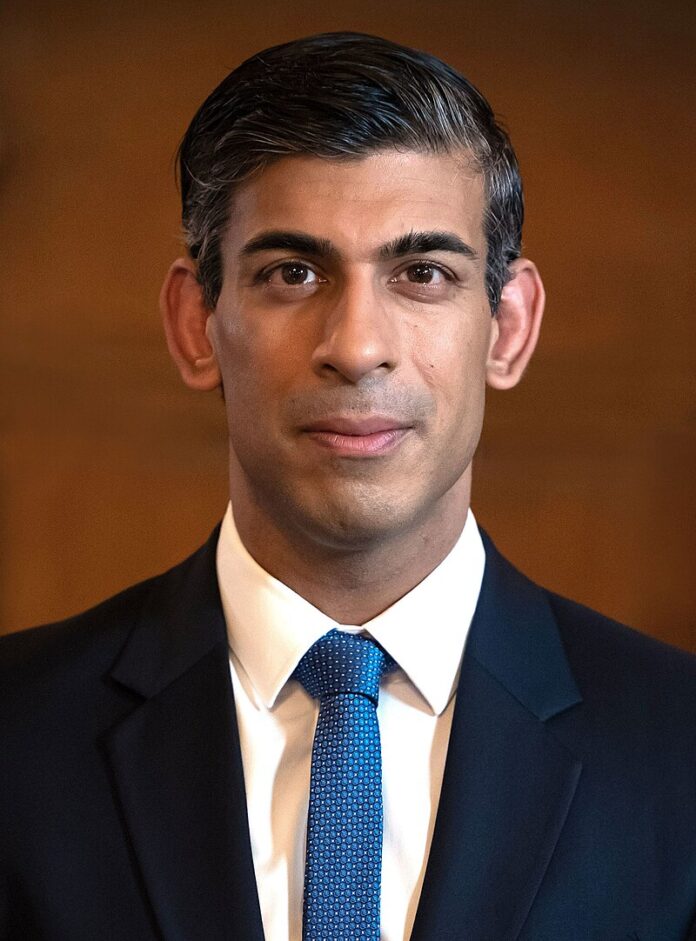

- PM-led taskforce needed to bring “ghost children” of lockdown back to school, as sport interventions found to boost engagement and reduce crime
- Former schools minister backs call to “revolutionise” access to sport
- Soaring bank profits should part fund new Right to Sport, says report
The radical plan from the Centre for Social Justice (CSJ) says that urgent action is needed in the wake of the Covid pandemic which led to the closure of schools for long periods and blighted the prospects of millions of children.
The two additional hours a week of sporting activity would be delivered in state secondaries as part of new funds to provide an additional five hours of extra-curricular activity, provided on school premises by local community organisations including sports clubs and charities.
Sport interventions were found by researchers to cut offending by 52 per cent, significantly reduce violent crime, and boost numeracy skills among underachieving children by 29 per cent. Yet a third of children today are inactive, that is, doing less than 30 minutes of exercise per day.
One in five pupils do no extra-curricular activities at all in an average week, rising to one in four pupils from disadvantaged backgrounds. The UK lags behind its OECD counterparts, with activity levels lower than Finland, Ireland, Austria, Hungary, Spain and the EU average.
The Right to Sport would see all pupils participate in a minimum of two hours of extra-curricular sport per week, on top of PE time already scheduled on the curriculum, closing the ‘activity gap’ between state school pupils and their independently educated peers.
The £1.4 billion estimated cost of the programme should be partly funded, the think tank suggests, by a new levy on Premiership football transfers and an increase in the surcharge on bank profits, which have soared as interest rates have been lifted by the Bank of England.
The report, Game Changer: A plan to transform young lives through sport, was produced in partnership with the Nick Maughan Foundation, and follows the CSJ’s pioneering work identifying the so-called “ghost children” – over 100,000 who have stopped attending school on a regular basis.
The CSJ found that failing to reduce school absence risks producing an additional 9,000 young offenders by 2027, including 2,000 violent offenders, but the think tank argues that a new Right to Sport will help to turn the tide.
The report comes as the Government’s new sport and physical activity strategy was published last week, which established ambitions to increase the number of active children by one million.
Welcoming the strategy, the CSJ argues that Government now needs to announce concrete policies to achieve this target, such as the Right to Sport.
The report is backed by a string of sports stars.
England Rugby captain Courtney Lawes said:
“I was lucky enough to go to a state school where rugby was a major sport. There were some trials at the school, so I just thought I’d give it a crack. It was the start of everything for me. But how many state school kids can say that these days?”
Lawrence Dallaglio, former England Rugby captain, and an advisor to the report, said:
“The evidence clearly shows how sport can cut offending rates and improve school attainment. The CSJ’s proposal for a minimum of two hours’ extra-curricular sport a week for teenagers – on top of their regular PE classes and provided by community sport organisations – would bring state secondaries more into line with private schools.”
In a foreword to the report, Game Changer, the Chair of the report’s advisory board and former Schools Minister, Lord Nash, said:
“Now is the time to reimagine the future. During my five years as Academies and Free Schools Minister I saw first-hand so often the transformative power that sport and physical activity can have on our young people.
“At the heart of the matter lies the question of access to opportunities, which are not evenly spread. Children attending independent schools do three times as much PE as those in state schools. Unsurprisingly, people who were educated at independent schools form a hugely disproportionate percentage of many of our national and Olympic squads.”
The report declares: “Sport has the power to transform lives . . . For the young people of this nation, sport unlocks life-long friends, introduces mentors, provides purpose, builds confidence – and keeps us out of trouble. It boosts academic prospects, combats mental ill health, and gets us ready for the world of work.
“The evidence is resounding: sport is more than a game. Yet for too long, the power of sport has been underappreciated, particularly the role it can play in both reducing crime and protecting young people from it.”
The CSJ, the think-tank set up by former Conservative leader and Cabinet minister Sir Iain Duncan Smith 20 years ago, deplores the way that services for young people, such as youth clubs, have fallen away in recent years under the impact of swingeing local council spending cuts.
Its report amounts to a clarion call to reverse this trend, prioritise the young, and the power of sport to give hope and opportunity to disaffected youngsters.
The report says:
“In recent years, young people have fallen to the bottom of the political agenda. Chronic underinvestment in youth services, diminishing extracurricular opportunities and dwindling activity levels have coincided with rising levels of youth violence, a spiralling mental health crisis and growing discontent.
“Original polling for the CSJ reveals that while almost half of parents say their children have been victims of antisocial behaviour, barely a third think that young people have access to enough opportunities, like sports clubs, in their local areas.
“It is perhaps no wonder that our young people are fed up, disenchanted and disempowered. They include the so-called ‘ghost children’ of lockdown who, absent from school and without urgent re-engagement, will graduate into a post-pandemic world for which they are grossly underprepared, three times more likely to offend by aged 17.
“And yet our research shows that far from abandoning them to this fate, now is the time to double down on our commitment to the next generation. After the damage inflicted by successive lockdowns, we owe it to our young people to offer them the brightest possible future. We believe that sport holds the key to this.”
The reports advances a raft of policy recommendations as part of a plan to transform young lives from sport, including:
- A £1 billion “payment by results” fund to tackle youth offending through sport interventions
- A new Youth Infrastructure Endowment match funding donations from private and philanthropic sources to embark on an ambitious building programme of new youth clubs and services
- A new requirement to make the sharing of sports facilities a minimum baseline for independent schools to meet their public benefit test
“Children paid a high price for the pandemic. Giving them a right to sport will help to address the legacy of school absence, and reduce underachievement and the pathway towards criminality.”
Labour MP Carolyn Harris said,
“This summer I have been helping to feed hungry kids and have seen for myself how the sports we have been running alongside this has engaged them, given a sense of purpose and brought them back for more. Rather than this government’s emasculation of community provision, we need more to help keep our kids healthy, safe and on the right side of the law.”
Conservative MP Nick Fletcher said,
“I fully believe that active lives lead to active minds. We need to get our boys and girls away from their laptops, consoles and mobiles. Sport at any level instils a real sense of social connection, camaraderie and opportunity, beyond the physical health benefits and helps give purpose and keep our young people out of trouble. They need this after the last few years. This is why I fully support this report and its recommendations.”
Nick Maughan, founder of BoxWise, said:
“I’ve seen for myself how sport can help keep children and young adults on the straight and narrow, which is why we started BoxWise in the first place. You don’t have to be sporty to do it, but every day of the week our trainers across the UK are helping youngsters to discover a sense of purpose and pride within themselves. The data’s clear that sport helps them to stay at school and out of gangs.”
Andy Cook, CEO of the Centre for Social Justice, said:
“The data tells us that sports can boost engagement and reduce crime. Children have paid the highest price for the pandemic, with the legacy of school absence leading to underachievement and criminality for some. Nothing less than a Prime Minister-led taskforce is needed to give children a right to sport, paid for by those who have benefited most from the impact of pandemic.”

|
| Help keep news FREE for our readersSupporting your local community newspaper/online news outlet is crucial now more than ever. If you believe in independent journalism,then consider making a valuable contribution by making a one-time or monthly donation. We operate in rural areas where providing unbiased news can be challenging. |























